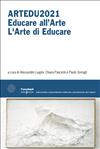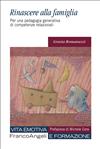
Maria Montessori’s educational proposal had a revolutionary significance since its origins. It freed childhood from the raising social marginalization to a “golden age”. In a period marked by widespread national-popular illiteracy, a “New Education” originated exactly among the poorest social classes, represented a valuable tool for the literacy and regimentation of the masses to the rising fascist ideology. Montessori avoided it, paying with obstructionism and discredit. However, even today, Montessorian theory keeps on gaining credit as a “pedagogy of resistance” to the technical and technological revolution of information and communication. She is not even adverse to the use of technology in daily life or in education. Far from stopping the technical progress and the social technological literacy, it is a question of stemming the educational deprivation of the young people experience, rediscovering an active, direct and participative learning, with a specific attention to the early childhood. Experience offers a good and attractive alternative to the standstill caused by the overuse of the mass communication means. Preserving the 0-3 years children from the early abuse of technology, provides a “dilating education” of childhood’s fields of experience and evolutive possibilities. In this way the child is ready to approach the technologies, in order to enjoy without suffering their growing capacities.

